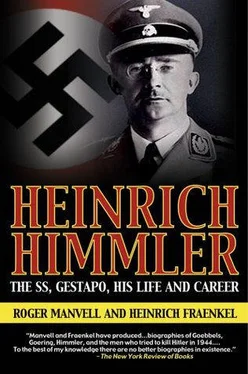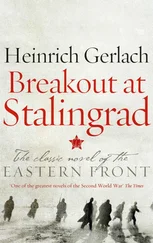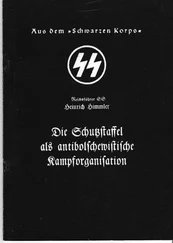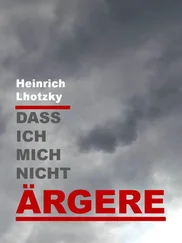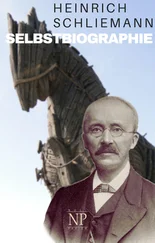20
Officially, Mueller has for some time been regarded as dead, but an excavation of his grave during 1963 has revealed that it contained the remains of three men, all younger than Mueller at the time of their deaths. This deception seems only to confirm the original suspicion that he has escaped to Russia.
21
Schellenberg in his Memoirs (pp. 395 and 432) writes as if he responded quite independently of Himmler to an invitation from Kersten to visit Stockholm and discuss peace proposals with Hewitt. When Kersten reported his discussions to Himmler, he was, says Schellenberg, ‘aghast’. Later, however, he encouraged Schellenberg to maintain contact with Hewitt.
22
Hitler’s and Himmler’s racial prejudices lost the Germans, until it was too late, the opportunity to draw on Russian reinforcements alleged to amount to some 800,000 men of the Cossack élite regiments. Led by the Ukrainian General, Vlassov, their price would have been equality with the German soldiers and independence for the Ukraine. Hitler failed to develop the Ukraine into an anti-Stalinist, pro-German stronghold. See also Chapter VII, p. 203.
23
Himmler’s new position in fact gave him few additional powers to those he already held; his control over Frick had always been tight. Bormann, according to that acute observer of Nazi character and intrigue, Albert Speer, ‘did not take long to stalemate Himmler as Minister of the Interior’. If the regional police came under Himmler, the civilian authorities, the local Gauleiters, were responsible to Bormann. This was the source of Bormann’s power in the nation itself, just as his position as Hitler’s personal secretary was the root of his power at the Führer’s headquarters.
24
Dornberger’s initial encounters with Himmler are described in his book, V.2 , pp. 172 et seq.
25
We are grateful not only to Dr Otto John but to the former S.S. General Wolff for giving us evidence on the Langbehn-Popitz attempt to approach Himmler. Both agree there was only one meeting between Popitz and Himmler, not two as has been frequently alleged. Wolff confirms that Langbehn stayed talking with him while Popitz went in to see Himmler. Otto John told H.F. that Popitz explained to him that he began the interview with Himmler by voicing his anxiety about Göring’s indolence, and then vaguely hinted that, for the sake of the fatherland, even the leadership at the top required shaking up.
26
Another very important group of high-minded members of the resistance who had links with the Abwehr — Dietrich Bonhoeffer, Joseph Müller and Hans von Dohnanyi — had been arrested in April 1943.
Additional Note
We have received useful information about Himmler from Doris Mähner, who at the age of twenty-two joined Himmler’s secretarial staff in 1943, her particular recommendation being that she, like Himmler, was Bavarian. She was well treated, but paid only 300 marks a month. She was expected to live on Himmler’s special train for days and nights on end. He dictated to her fluently in his broad Bavarian accent, but irritated her by plucking at his left eyebrow with his left hand. As a man she found him utterly unimpressive, but he was always very considerate, giving the girls who worked for him small presents on their birthdays and at Christmas. He had a careful system of reminders to keep him up to the mark. Similarly, his correspondence, which was voluminous, was carefully docketed to ensure he received the replies he asked for. Frl. Mähner noticed his love for Hedwig; he kept her photograph hidden in his desk and often looked at it while he was working. The girls joked about his obsession concerning blond men and women; Frl. Mähner often watched him studying the photographs of prospective S.S. brides before making a decision as to their suitability for his men.
The references in this chapter are all to Kersten’s Memoirs (Hutchinson, London, 1956). The many sheets from Himmler’s desk diary that survive in the Federal Archive at Koblenz show how much time Himmler spent in the care of his captive masseur; he normally set aside as much as two hours at a time, morning or afternoon, for the treatment that became increasingly essential to him. It should be remembered that Kersten was by no means popular with such men as Müller and Kaltenbrunner; he was, too, regarded as ‘interfering’ by some of those who were seeking to bring about peace through neutral Sweden. There was, no doubt, a certain element of vanity in Kersten’s nature. His negotiations were bitterly resented by Count Bernadotte, who wanted to keep all the credit for the attempts to bring about peace for himself. Since the war, Kersten’s leading protagonists have included his biographer Kessel, Professor Hugh Trevor-Roper and Achim Besgen, who published a book on Kersten, Der Stille Befehl, in 1960. At one stage after the war, Kersten was being actively considered in Sweden for the Nobel Peace Prize.
1
Memoirs , pp. 311-12.
2
Memoirs, pp. 256-7.
3
Memoirs, pp. 257-8.
4
Memoirs , p. 177.
5
Memoirs , p, 178.
6
Himmler did not want to be considered an agnostic. He invented a special term for the form of belief he favoured — gottgläubig , implying belief in a form of godhead distinct from anything Christian. Himmler was against priesthood as a profession. He did not want, he said, a new form of ‘popery’ to grow up in the S.S.
7
Memoirs, p. 120.
8
Memoirs, pp. 306-7.
1
The full story of the attempt on Hitler’s life and of the failure of the military coup d’état on 20 July 1944 is told in the authors’ book The July Plot .
2
Himmler said this to von Krosigk, who later repeated it to H.F.
3
The list of 161 proven victims who were executed is given in Wheeler-Bennett’s Nemesis, p. 744.
4
See The S.S., pp. 300-1.
5
See The S.S., p. 268. According to evidence submitted at the I.M.T., Himmler formally witnessed the execution of Russian officers at Mauthausen during September 1944. See I.M.T. V, pp. 170, 174, 231.
6
See Dulles, Germany’s Underground, p. 163.
7
The evidence at Koblenz, Amsterdam and Warsaw (which H.F. visited during 1963) in particular carries innumerable documents which testify to the commercialization of the Jewish persecution. These include the sale of emigration permits which in Amsterdam, for example, goes back to April 1942. Elderly Jews were favoured who represented no security risk and who were willing to hand over money, securities or industrial plants. Other documents list in painstaking detail the disposal of looted treasure which was to be distributed among various Army, Navy and S.S. units.
8
See Schellenberg’s Memoirs, p. 430.
9
See The Final Solution, p. 462. Becher’s affidavit was produced during the hearing of Case XI at Nuremberg, Doc. No. N.G. 2675.
10
Eichmann refused to obey orders received from Himmler by telephone to stop the deportations; he claimed he must have them in wirting. See The Trial of Adolf Eichmann, p. 170.
11
See I.M.T. XI, p. 306.
12
See The S.S., p. 385.
13
Quoted by Milton Shulman in Defeat in the West, p. 218.
14
See Domberger, V.2, pp. 187-201.
15
See Guderian, Panzer Leader , p. 355.
16
For the dispute surrounding this episode, see The S.S., p. 377.
17
For Vlassov and the significance of Himmler’s refusal to make use of him, see above, Chapter V, note 22.
Читать дальше
